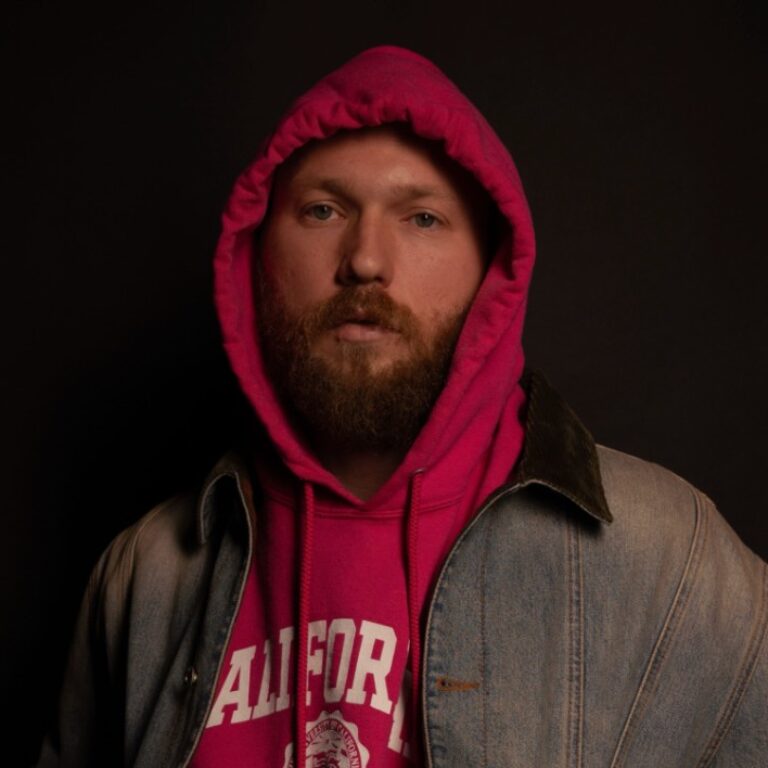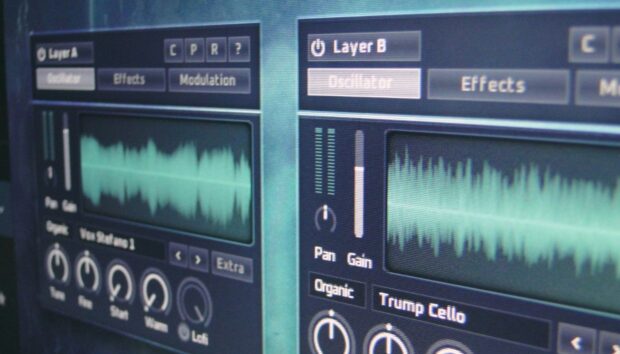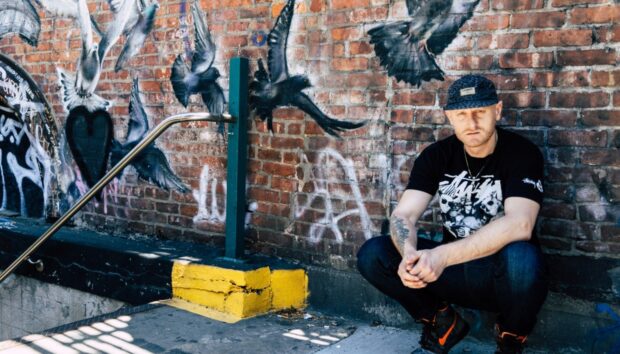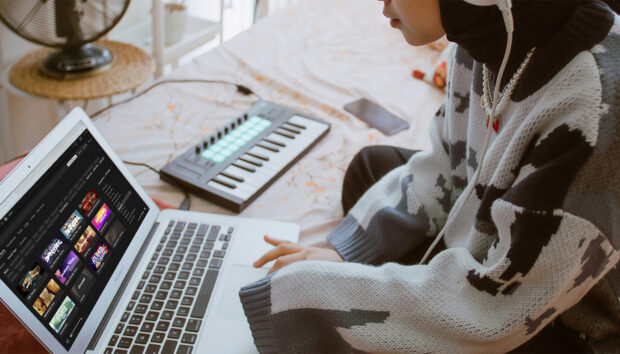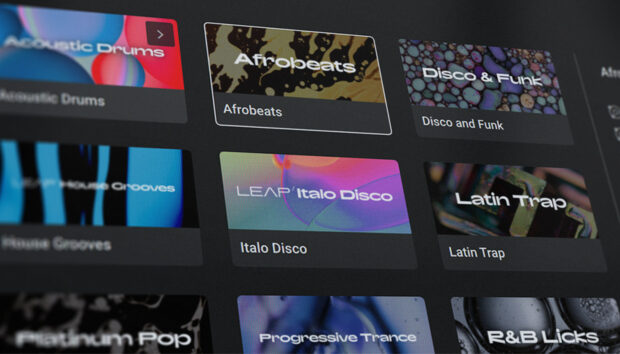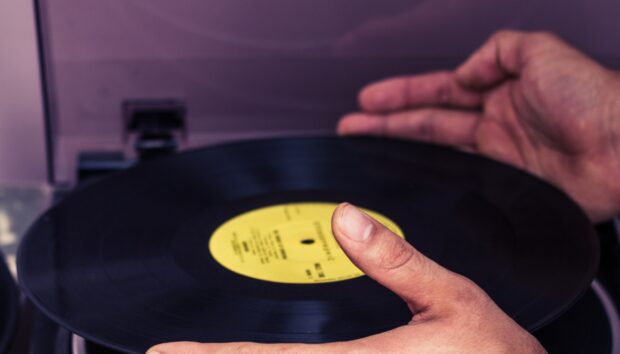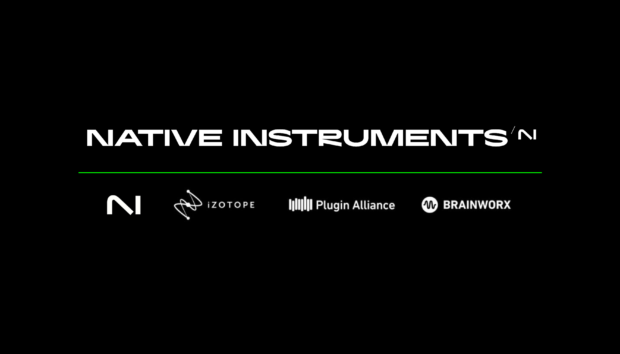Writing music, crafting melodies, and arranging chord progressions can be incredibly rewarding. However, an equally crucial aspect of a music producer’s job is selecting the right samples and sounds. The sounds you choose for your melodies, drums, and other elements are just as important as the melodies and chord progressions themselves.
It’s tempting for producers to constantly download or purchase new samples to expand their libraries, but this can lead to an overwhelming number of options, diluting your sonic identity and draining your wallet. No one understands this better than GRAMMY-nominated producer and recording artist Bluey Thomas. Known for his diverse, yet truly authentic sound and strong sonic identity, Thomas has made a mark without breaking the bank or with overly expensive gear.
From producing on Post Malone’s Beerbongs & Bentleys LP to other high-profile collaborations, his experience is invaluable and with his debut alt-country LP, More Than Before having just recently dropped, we figured it was the perfect time to pick his brain.
In our interview, Thomas shares insights on finding your unique sound and selecting the right Kontakt libraries to define your sound without overspending.
Jump to these sections:
- Over collecting sounds vs. knowing just a few
- Unexpected results from Kontakt
- Creativity vs. the pressure for output
- Does uniqueness come from tools or how they’re used?
- Deciding where to invest your time and money
- Advice for producers trying to find their sound
We cover topics from unexpected results with Kontakt libraries to defining sample libraries that have become his signature. He also shares industry insights that are relevant to your career. Check out the full interview for more.
Do you think it’s more important to focus on libraries that expand your range or ones that really nail the core of your sound?
I like to find libraries that expand my sound.
Whenever I’m stuck on a project, it helps me get re-inspired and break the cycle of using my go-to sounds.
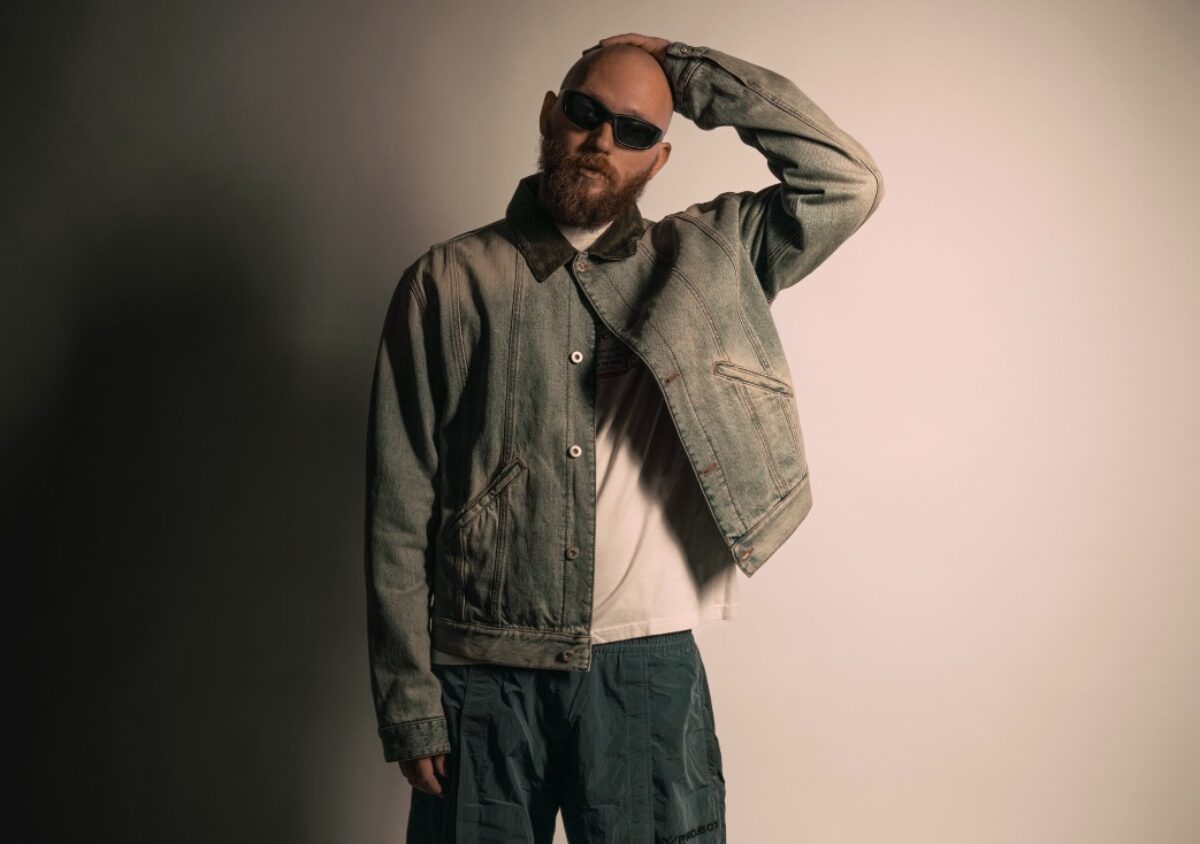
Tips from Bluey Thomas: Try to finish ideas even if they aren’t “amazing.” It’s a good habit to at least arrange the track super fast and bounce it. Of course there are times when I give up on ideas, but I generally try to make it a habit to have some sort of simple, blueprint arrangement that I can bounce. It has helped me become a more efficient producer. It also can help break the curse of just goofing around for hours.
What’s a library you’ve bought that ended up being way more useful than you expected?
The Spotlight Collection – Cuba library. Most people would assume this library can only be used for Latin productions, but I love implementing these drum sounds into my pop production to give it a fresh feel.
For example, when I worked on “Paranoid” with Post Malone, I used the timbales as a perc in the drums and they became a defining sound in the production that people still always ask me about.
What’s your take on balancing creativity with the sheer volume of tools available in Kontakt?
It depends. Sometimes I have a specific sound or genre that I’m working on, so I stick to the libraries that cater to those genres.
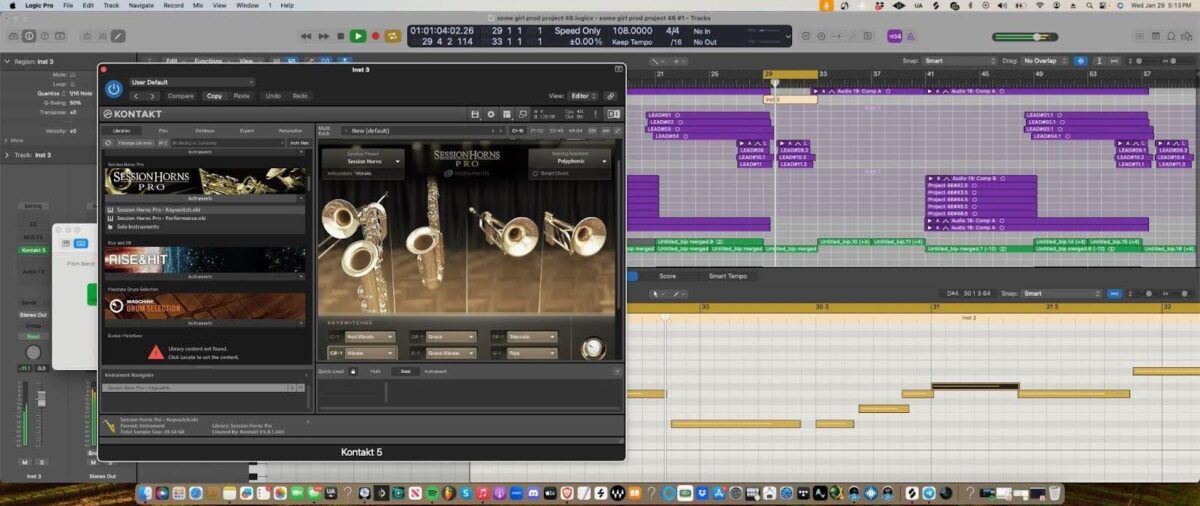
However, when I’m not working on anything specific and am in more of a creative mindset, I love spending hours opening random libraries and just exploring sounds and throwing stuff at the wall.
Sometimes I do get overwhelmed and stuck with the sheer amount of possibilities on Kontakt, so that is when I start to simplify and peel back any unnecessary elements to hone in on the essence of the song at its core.
Tips from Bluey Thomas: Something that I notice in studio sessions is that producers focus too much on the mix while simultaneously trying to create. Doing so can sometimes be counterintuitive, because of the sheer frequency their creative juices have stopped flowing. For example, getting stuck trying to mix the drums for an hour. When you’re writing music, your focus should be solely on that – and not get sidetracked with mix notes.
When it’s time to get it to a place where I can send a bounce, I’ll take a day and focus on the mix.
How much of a producer’s sound do you think comes from the tools they use versus how they use them?
I don’t attribute my sound to the tools that I use. My sound comes more from my influences, whatever I’m currently listening to and inspired by – then that helps dictate what tools I use, or what new tools I need to get, to achieve the sound I’m trying to re-create.
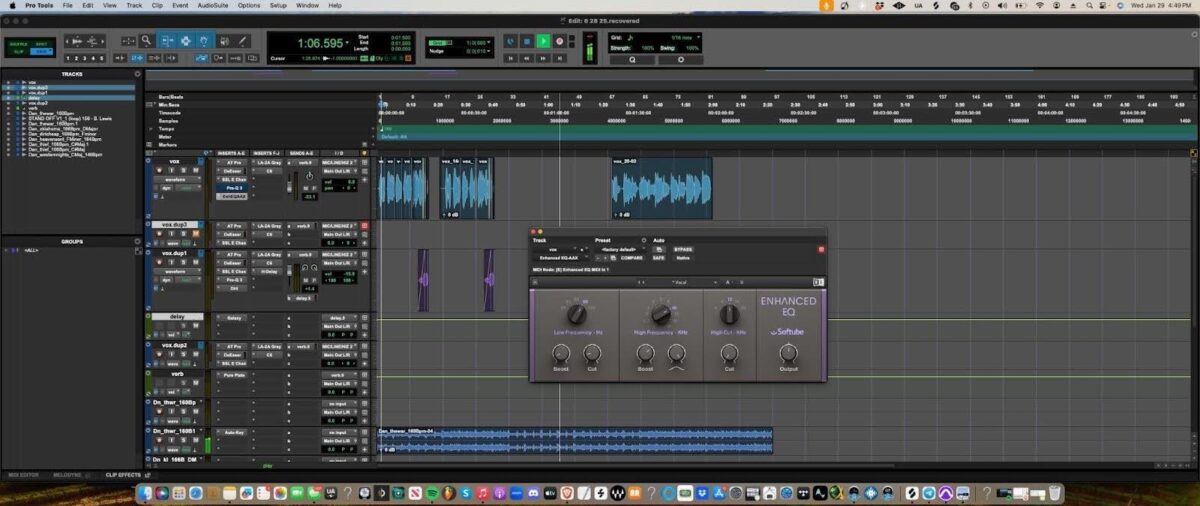
Tips from Bluey Thomas: Don’t be afraid to get outside of your comfort zone. I started producing in Logic, but over the years, I learned the other DAWs, which proved extremely useful. Being able to walk up to the computer and do what I want on Pro Tools, without depending on an engineer, has been huge. My only regret is not learning it sooner.
A lot of producers worry about overspending on tools – how do you decide what’s worth the investment?
Whatever you use frequently is worth it. For example, I use a lot of vocal chains and mixing plugins because I also engineer all of my records myself, so the pro-vocal processing plugins get used on almost everything.
As far as production tools go, if I find that I haven’t used something in a few months, I’ll get rid of it.
Sometimes I do find myself even re-buying plugins when the need arises, but overall, I believe that investing in your craft is a good idea. There are a lot worse things that people spend their money on, so I just remind myself that this is for my career and my success in the future.
Tips from Bluey Thomas: During my first few years, I was creating as much as I could, as often as I could. To be great you need to put in the reps and there’s no shortcut.
Another thing that helped me was soaking in as much information as I could. From podcasts, magazines, interviews, YouTube videos, and production breakdowns, I’m constantly consuming these types of things to keep myself inspired. Just look at it like studying!
What’s one piece of advice you’d give to a producer who’s just starting to figure out what their sound is?
Something that has really helped me find a sound was re-creating some of my favorite songs – or at least trying to, and failing. From there, I often found myself changing things to fit my liking or even unintentionally doing something different which left me with a more unique sound.

Inspiration and being a fan of music is the ultimate way to form a sound. Discovering cool artists and songs gets me excited to create the same feeling in my productions that they give me when I listen to them.
Continuously becoming a fan of other people’s art is what I find continually drives me to innovate my sound.
Tips from Bluey Thomas: Collaboration is key. It’s super important to create a community and network of other musicians and producers in your area. When I first started, I was extremely eager to meet and work with other producers who may have more experience than me and I prioritized taking every opportunity to do so. To this day, I still work with some of my earliest collaborators.
Start finding your vibe
A huge thank you to Bluey Thomas for coming on and sharing his insights on finding your sound without overspending. He broke down how Kontakt serves as the core of his setup, giving him access to a broad selection of sounds that help shape his final productions. And of course, congratulations again on the release of his debut alt-country LP, More Than Before.
If there’s one key takeaway from this interview, it’s that success in music isn’t just about the tools – it’s about how you use them. Whether it’s your Kontakt libraries for writing melodies or the way you move in the industry. He shared valuable strategies for using your unique sound as leverage to land opportunities, from collaborations to finishing every idea you start and beyond.
It all comes down to how you apply the resources at your disposal, both in and out of the studio. Special thanks again to Bluey Thomas for sharing his experience.
Start experimenting with your sound with the free Kontakt Player.








